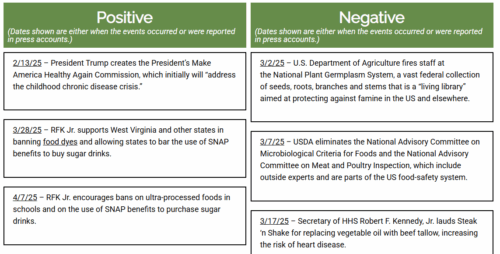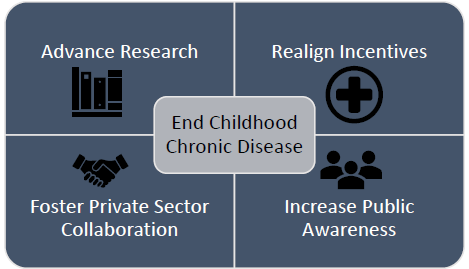A food politics round up of sorts
Alert to readers: Amazon.com displays listings for several more workbooks, study guides, and cookbooks purportedly based on my book, What to Eat Now (see previous post on this). I did not write any of them. Caveat emptor!
___________________________
From FoodDive: How MAHA transformed the food industry in 2025: Lawmakers capitalized on anxieties around ultraprocessed ingredients to introduce new regulations, with companies choosing to reformulate or fight back.
To summarize:
- Artificial food dyes: food companies voluntarily said they would get rid of them by the end of 2026 or 2027. Will they? We shall see.
- Ultra-processed foods: The first MAHA report mentioned them 40 times. By the second, the only issue was to define them, and RFK Jr said they might not even do that.
- GRAS loophole: The FDA says it will require better evidence of safety before allowing new additives in food.
- Seed oils: some food companies are replacing them with beef tallow or avocado oil. How will this affect health? It depends on the quality of the replacement.
- High fructose corn syrup: Coca-Cola said it would replace it with cane sugar, no doubt at higher cost. Since both sweeteners have the same sugars and calories, this switch is unlikely to make any difference to health.
- School food: Whole milk is back. Will this help children maintain healthy weight? We shall see.
- SNAP: 18 states are restricting sodas (some also restrict candy or desserts) from purchases using SNAP benefits. Will this encourage SNAP recipients to buy less soda? I hope states will collect data on this and other points.
- Dietary guidelines: They are expected next week. We shall see.
The food industry’s response?
- Go along with this if it doesn’t affect the bottom line.
- Fight back if it does. And sue states if it really does.
So far, most of what is happening in the food arena is either still in the promise stage, voluntary, and unlikely to have much health benefit (See: A MAHA Check-Up: Is The United States Getting Healthier?)
All of what is happening with food must be understood in the context of the devastating destruction of America’s public health and scientific research systems.
MAHA’s work is focused on the dietary choices of individuals.
Any individual who tries to make healthful dietary choices is up against a food system designed for profit, not public health.
Diet matters to health, but healthy diets are not enough to prevent measles.
We need functioning public health systems: CDC, FDA, NIH. We no longer have them.
Happy new year everyone. Let’s hope the new year brings us peace, kindness, and public health.




